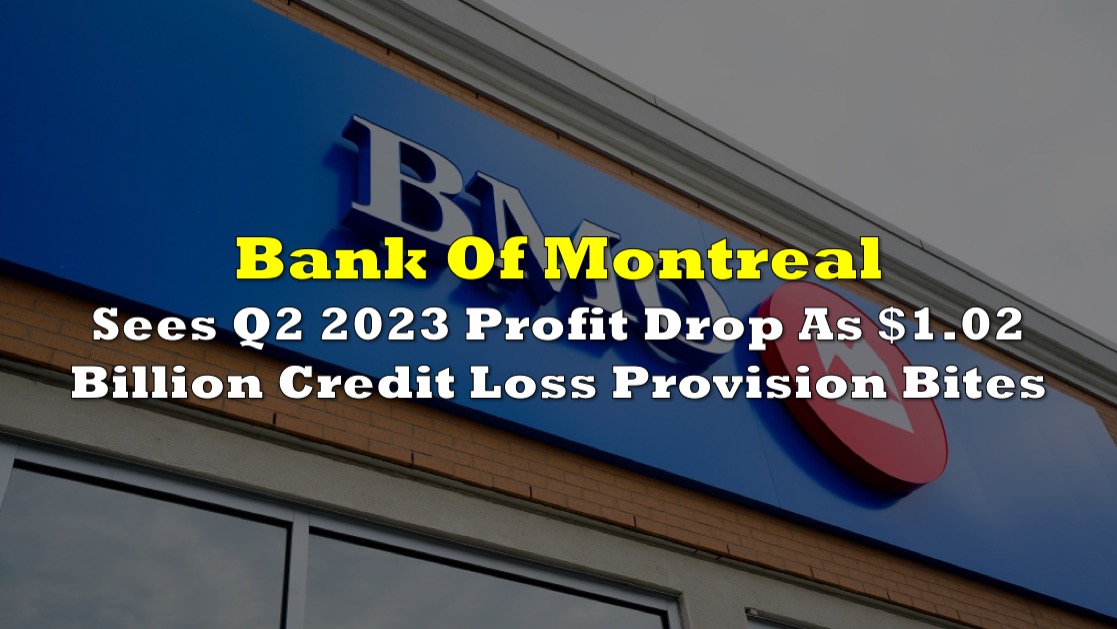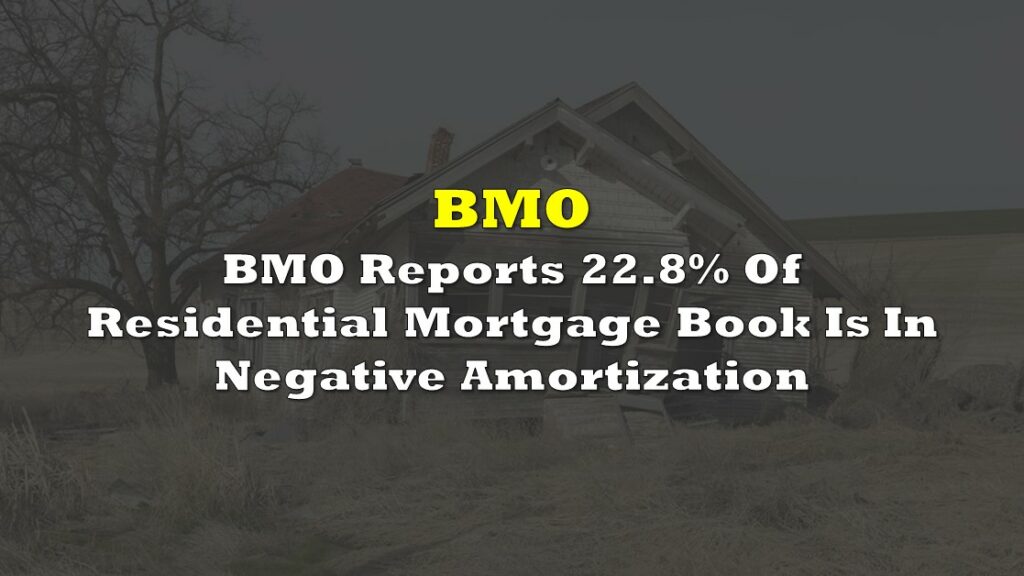Bank of Montreal (TSX: BMO) reported an unexpected decline in fiscal second-quarter profit due to a greater provision for loan losses than predicted by analysts and a drop in trading revenue.
The bank said in a statement Wednesday that its provision for credit losses of $1.02 billion, including an initial $517 million on its performing loan portfolio of Bank of the West. It’s the first time Bank of Montreal has published earnings that include the San Francisco-based lender, which it paid $16.3 billion to acquire from BNP Paribas SA.
In comparison, the firm set aside $50 million in provisions in the same quarter last year as loan loss reserves began to rise from reversals issued last year during the COVID-19 epidemic, when default rates were more resilient than predicted.
Total revenue declined from $9.32 billion last year to $8.44 billion in the quarter, including $1.07 billion from the integration of Bank of the West. Around $5.57 billion in expenses recorded included $1.58 billion from its most recent acquisition.
The capital-markets division of Bank of Montreal generated $1.59 billion in revenue, which was in line with analysts’ expectations. Global markets revenue was down 15% from the first quarter, with trading revenue declining across the board, but investment and corporate banking revenue increased.
Bank of Montreal Q2/23 weaker than expected across almost all business segments $bmo.to #stocks $bmo pic.twitter.com/8aP4JHEC1E
— Burnsco (@garquake) May 24, 2023
In the three months ending April 30, the bank earned $1.06 billion, or $1.30 per share. This compares to $4.76 billion, or $7.13 per share, in the same period last year.
Bank of Montreal reported 1.69% in net interest margin, the same level as a year earlier and above analysts’ expectations. Adjusted EBITDA was $2.93 per share, falling short of the $3.21 average estimate of analysts polled by Bloomberg.
“Our performance this quarter reflects our highly-diversified business mix and the strength, size and stability of our balance sheet, which has been further enhanced by the successful acquisition of Bank of the West,” BMO CEO Darryl White said in a statement.
$BMO $BMO.TO
— Canadian Banks (@cadbanksonly) May 24, 2023
Q2/F23 EPS of $2.93 missed $3.16 consensus by a lot. Tough to tease out why given first dance w/BotW, but it does appear that core BMO numbers were weak and on the revenue side. Looks like all-bank margin would have been down plus some fee weakness probably…
Net income from Canadian personal and commercial banking was $861 million, an 8% decrease from the previous year, as increased loan loss provisions and expenses offset a revenue increase.
Meanwhile, net income from the bank’s US operations increased 34% year on year to $789 million, with Bank of the West contributing $107 million. Revenue increased by 9% due to higher net interest income from expanding loan balances, which was offset in part by higher expenses and a higher provision for credit losses.
The wealth management division earned $284 million in net income, a 10% decrease from the same quarter last year, due to weaker global markets, reduced online brokerage volumes, and greater expenses.
Capital markets profit plummeted 15% to $380 million, owing to 1% revenue increase and greater expenses.
The Bank of the West acquisition, which concluded on February 1, increased the bank’s US reach to 32 states and made its US personal and commercial banking division slightly larger than its Canadian one, with $2.6 billion in sales for the quarter.
Like Scotiabank, who also reported its financials that failed to beat estimates, Bank of Montreal also announced on Wednesday that its board of directors increased the quarterly dividend by 2.8% to $1.47 from $1.43. The new quarterly distribution of $5.88 per year equals a 5.01% annual return based on Tuesday’s closing price of $117.43, up from 4.87%.
The enhanced dividend will be paid to stockholders of record on July 28th, according to the Toronto-based banking and financial services conglomerate.
$BMO.TO also misses estimates, and by a slightly wider margin than BNS. But at least there is the div increase. Comments from RBC's analyst: pic.twitter.com/I7I4StR8mt
— TSX Dividends (@TSXDivStock) May 24, 2023
Back in March, BMO has entered an arrangement to acquire the popular Air Miles Reward program from that of a subsidiary of Loyalty Ventures following the latter’s bankruptcy filing.
BMO last traded at $117.43 on the TSX.
Information for this briefing was found via Sedar, Bloomberg, The Globe And Mail, and the sources mentioned. The author has no securities or affiliations related to this organization. Not a recommendation to buy or sell. Always do additional research and consult a professional before purchasing a security. The author holds no licenses.









